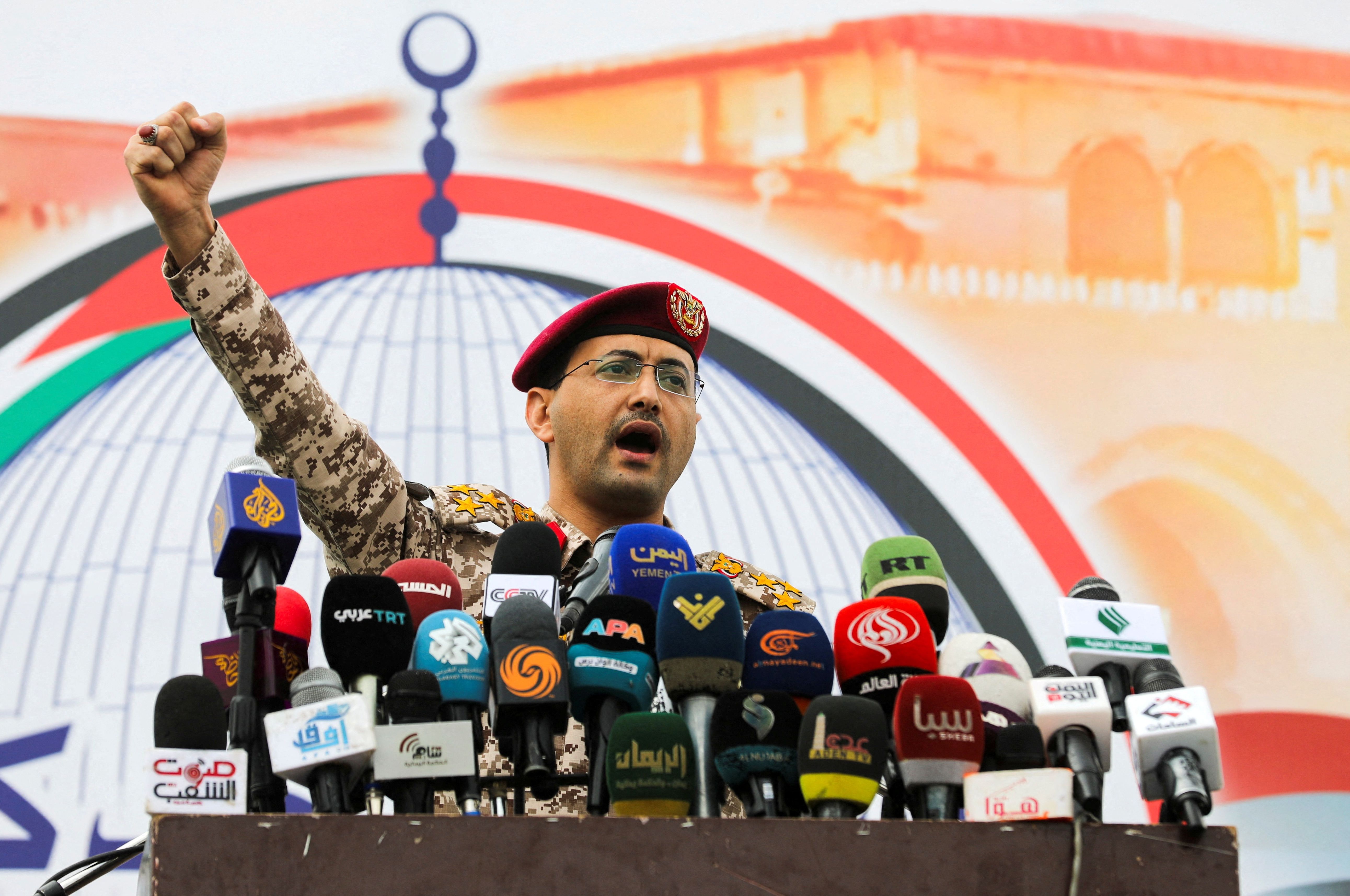Shortly after Israel began its war on Gaza last year, Yemen’s Ansarallah, commonly known as the Houthis, began firing missiles and drones at Israel-linked merchant and commercial vessels in the Gulf of Aden and southern Red Sea.
This was Ansarallah’s way of supporting the Palestinians in Gaza by “counter-blockading the blockader.” Such action has been consistent with Ansarallah’s practice of taking an “eye-for-an-eye” when dealing with the rebel movement’s domestic and foreign enemies.
Perceiving this Houthi conduct near the Bab al-Mandab strait as a major threat to the global economy, the U.S. and U.K. — with nonoperational support from Australia, Bahrain, Canada, and the Netherlands — began waging military operations against Ansarallah on January 12. The aim has been to deter the Houthis from carrying out such maritime attacks.
The coalition has been waging these strikes against the Houthis on almost a daily basis for the past five months. Recently, on June 7, the U.S. and U.K. conducted six air strikes — four of which targeted Yemen’s Hodeidah airport and the Salif seaport, while two were against the al-Thawra region, according to the Houthi-owned, Beirut-based Al Masirah TV.
These strikes came eight days after the two Western militaries attacked Houthi targets in Hodeida and southern Yemen, killing at least 16 and wounding 35 in what appeared to be one of Washington and London’s largest attacks against Ansarallah since the joint American-British campaign began in mid-January.
How much damage the strikes have inflicted on the Houthi war machine and its ability to continue attacking maritime targets is difficult to determine. Nonetheless, these operations, which have cost the U.S. some $1 billion according to a new intelligence report, have ultimately failed to deter Ansarallah, which continues firing missiles and drones at vessels off Yemen’s coast.
“Clearly, there has been some damage [to Houthi targets], but not at a significant level; the Houthis have suffered some losses, but they retain the ability to obstruct maritime shipping in the Red Sea,” said Thomas Juneau, an associate professor who focuses on the Middle East at the University of Ottawa's Graduate School of Public and International Affairs, in an interview with RS.
“And perhaps more importantly, beyond the material damage they have suffered, their intent to continue obstructing shipping in the Red Sea has not wavered.”
Neil Quilliam, an associate fellow in the Middle East and North Africa program at the London-based think tank Chatham House, sees the overall situation similarly. “The Houthis have remained undeterred, and the U.S.-U.K. strikes have had limited impact as evidenced by continued attacks despite repeated U.S.-U.K. attempts to disrupt the group’s campaign,” he told RS. “Continuation of the military campaign is unlikely to deter the Houthis.”
Since the military campaign against the de facto Yemeni government in Sanaa began in January, the U.S. has waged 450 strikes against Ansarallah. There is good reason to question the sustainability of these U.S.-U.K. operations against the Houthis. “Their supply of weapons from Iran is cheap and highly sustainable, but ours is expensive and our logistics tails are long. We are playing whack-a-mole, and they are playing a long game,” the Center for Strategic and International Studies’ Emily Harding recently told the Wall Street Journal.
The Biden administration refuses to see Houthi conduct in the Gulf of Aden and the southern Red Sea as linked to the U.S.-backed Israeli war on Gaza. Although Ansarallah has been straightforward with their vows to cease disruptive behavior off Yemen’s coasts once a ceasefire is in place in Gaza, the White House claims there is no connection between the two and that continuing these military operations against the Houthis, rather than addressing the root cause of this behavior, is the best course of action.
There is no denying that the coalition strikes have, to a significant extent, empowered the Houthis within Yemen and across the Arab world. Mindful of how anti-Israeli sentiments are shared by Yemenis across the country and its political spectrum, it has not been surprising to see Ansarallah boost its recruitment as a result of its maritime attacks waged under the banner of defending the Palestinians.
In the process, this has also put anti-Houthi forces in Yemen under increased pressure. This includes the Southern Transitional Council (STC), which depends on support from the United Arab Emirates (UAE), the Arab state that pioneered the Abraham Accords — a series of normalization agreements between Arab states and Israel. The Houthis have seized this crisis as an opportunity to “bolster their position as champions of the Palestinian cause, allowing them to increase their regional prestige and influence,” explained Juneau.
Ultimately it is unclear what Western and regional actors can do to influence the Houthis, who have proven their ability to live under intense pressure from the West and certain Arab states.
“The reality on the ground in Yemen is that the Houthis have won the civil war and the internationally recognized government is not in a position to challenge them; it is weak, fragmented, and corrupt,” Juneau told RS.
“The Houthis, moreover, fully intend to project their power beyond Yemen’s borders now that they have won the war. The U.S. faces a menu of only bad options in the face of this reality.”
- US strikes on Yemen won't solve anything ›
- Houthis now drawing support from former enemies in Yemen ›
- The US military's anti-Houthi campaign still isn't working | Responsible Statecraft ›
- US airstrikes against Houthis show there's 'free riding' in Red Sea, too | Responsible Statecraft ›
















